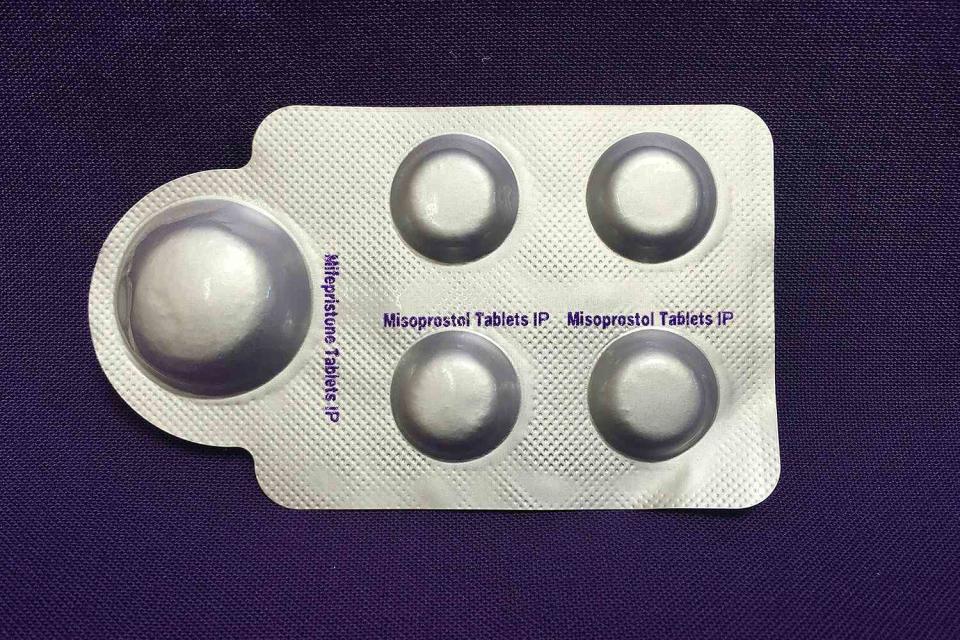Abortion Pill Startup Will Sell Meds to Patients Before They Get Pregnant: 'Peace of Mind'

Getty
A telemedicine clinic will offer abortion pills to patients prior to becoming pregnant in order to give them "peace of mind" following the Supreme Court's decision last month to overturn Roe v. Wade.
On Wednesday, startup company Choix — pronounced "Choice" — announced that they will now provide abortion pills to their patients ahead of unwanted pregnancy. Choix will work in states where abortion is legal and where they are licensed to operate, including California, Colorado, Illinois, Maine and New Mexico.
"Advance provision is the same medication, it's just providing the pills in case a patient needs them in the future and decides to use them," Cindy Adam, Choix co-founder and CEO, told CBS MoneyWatch.
It "helps alleviate the stress and barriers that come with accessing a highly stigmatized and politicized form of care — even in states where abortion is legal — by putting the power to decide back into the hands of that person seeking care," she continued.
Patients hoping to receive the abortion pills for future use must complete a five-question form available on the company's website. Following a review by a healthcare provider, Choix will deliver the medications to approved patients within a few days.
RELATED VIDEO: Supreme Court Overturns Roe v. Wade, Eliminating the Constitutional Right to Abortion
RELATED: How Does the 'Abortion Pill' Work? Here's Everything to Know About a Medical Abortion
If the person decides to use the abortion pills, Choix requests that they schedule a telehealth consultation with the company's medical providers who will guide them through the process.
"Our experience has been that for some people, the period between finding out that they're pregnant and receiving abortion pills in the mail or the wait time associated with in-person care can be extremely stressful," Adam said. "And that's compounded by the current legal and logistical challenges people face. This helps reduce those barriers."
Adam told the outlet that Choix's advance provision service is "practical but also very symbolic right now when so much of that decision-making power is being taken away. We want to give some of it back."
Choix abortion pills cost between $175 and $289 per prescription. Each patient is limited to one prescription and must confirm that they are receiving the medication for themselves only. The company also partners with abortion funds for patients who may need financial assistance.
A medical abortion consists of taking the drugs mifepristone and misoprostol a day or two apart to end early pregnancy.
"Mifepristone plus misoprostol is 95 to 98% effective at ending a pregnancy before 11 weeks," Susan Yanow, consultant to international activist non-profit Women Help Women and the U.S. spokesperson for SAAS, Self-Managed Abortions; Safe & Supported, previously told PEOPLE. "People in the U.S. have been using pills to self-manage abortions since at least 2000, and even longer in the rest of the world."
RELATED: Demand for Abortion Pills Increases After 'Roe v. Wade' Reversal

ELISA WELLS/PLAN C/AFP via Getty Mifepristone (L) and misoprostol tablets
Never miss a story — sign up for PEOPLE's free daily newsletter to stay up-to-date on the best of what PEOPLE has to offer, from juicy celebrity news to compelling human interest stories.
The pills can be taken at home, eliminating the need to drive to a clinic, take extended time off of work or worry about child care.
While the process can vary, Yanow said the most common method involves a person swallowing one mifepristone, waiting 24 to 36 hours, and then taking 4 misoprostol. Mifespristone blocks progesterone, which causes changes in the uterine lining and detachment of the pregnancy, while misoprostol leads to contractions.
Cramping and contractions may begin about 1 to 4 hours after taking misoprostol, emptying the uterus, much like a miscarriage. Pain can be managed at home, usually with ibuprofen and heating pads, although experts recommend that a hospital be reachable within an hour in case of emergency. Most people miscarry within 4 to 5 hours of the onset of cramping, but some lingering cramping may continue for a day or two.
"What these pills do is cause a miscarriage, which happens anyway in 15 to 20% of all pregnancies," said Yanow. "So if somebody uses these pills and needs to go to a doctor, they would get the exact same treatment as if they were having a spontaneous miscarriage."

